AMLE50 Snapshot Poster Presentations

Cast your vote for your favorite AMLE50 Snapshot Poster! Snapshot Posters are video presentations of up to 10 minutes that highlight an impactful practice. You can view them before, during, or after AMLE50, as they’ll be available to all attendees through December 31, 2023.
Snapshot Posters are also eligible for grand prizes! Prizes are determined by two scores:
- Peer voting (weighted at 25% of total score). Peer voting will be open until Friday, November 3 at 12:30 pm. Each AMLE50 attendee can vote for their favorite Snapshot Poster by placing their AMLE voting sticker on the poster of choice in the AMLE50 Exhibit Hall. AMLE50 attendees will receive their voting sticker in their conference tote at Registration.
- Evaluation of AMLE’s panel of judges (weighted at 75% of total score). Judges will evaluate Snapshot Posters based on three categories: 1) Content and organization, 2) Research and evidence, and 3) Delivery.
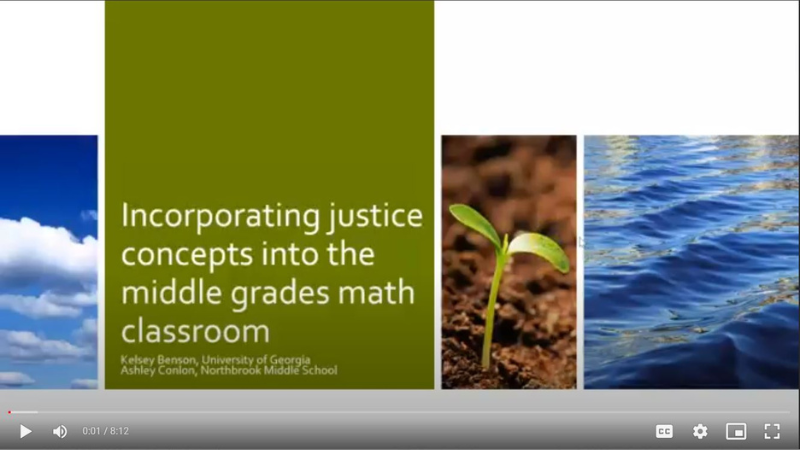
Snapshot 101
Incorporating justice concepts into the middle grades math classroom
Presenters: Kelsey Benson and Ashley Conlon
Now more than ever, it is imperative that middle grades curriculum invites “students to learn about matters of personal, social, moral, and ethical significance” (Bishop & Harrison, 2021, p. 27). Incorporating justice topics into curricular design is, however, no simple feat—particularly in math. In this poster, we present standards-based sample lessons on real-world social issues from math classrooms in grades 6 – 8 to empower middle grades math teachers to reimagine teaching and learning
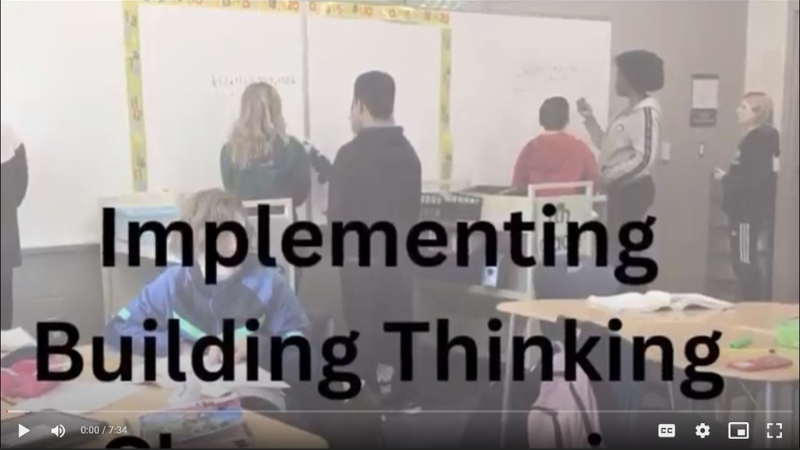
Snapshot 102
Implementing Building Thinking Classrooms
Presenter: Emily Bricker
Follow me as I implement the 14 practices from the Building Thinking Classrooms framework by Peter Liljedahl. Learn how to set up your classroom from day one to engage students like never before. See how to work with random groups and manage students standing at vertical whiteboards. You’ll see how to incorporate your current curriculum and assess student understanding.
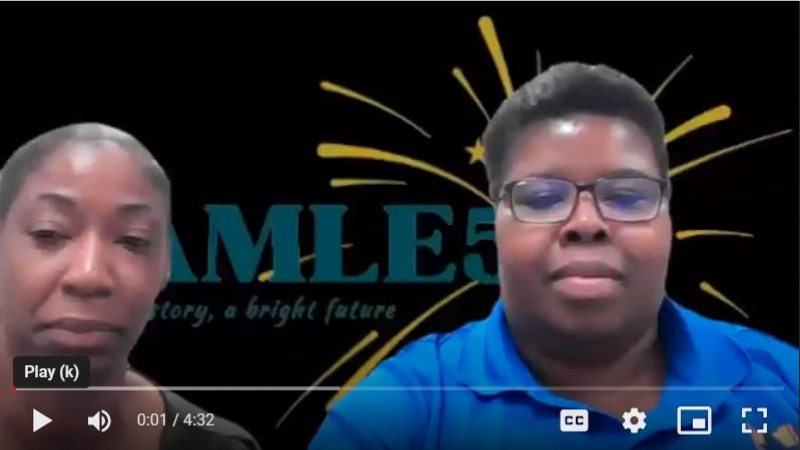
Snapshot 103
The Importance of Academic Counseling Sessions for Middle School Students
Presenters: Verneatha Corey and Mirshonda Spurlock
Academic Counseling Sessions are essential for students to achieve optimal personal growth, acquire positive social skills and values, set informed career goals and realize full academic potential to become productive, contributing members of the world community. This sessions will assist in helping counselors conduct academic counseling sessions that benefit all middle school students.
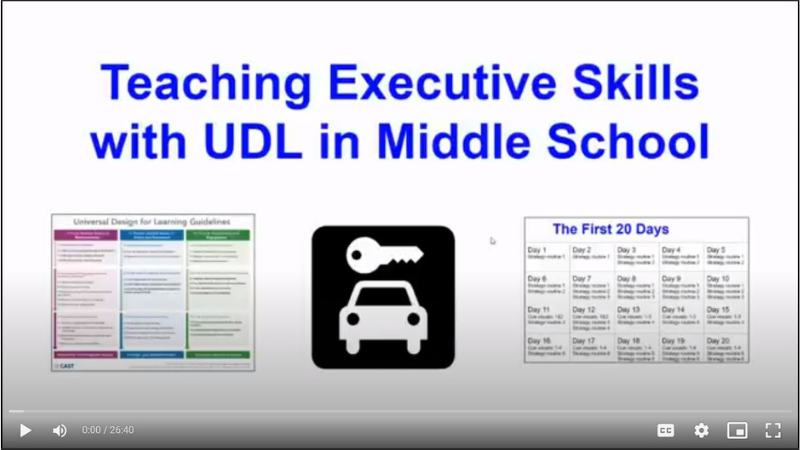
Snapshot 104
Teaching Executive Skills with Universal Design for Learning in Middle School
Presenters: Susanne Croasdaile, Samantha Layne, and Kristen Hunter
Executive skills develop until age 25, with rapid growth in the middle years. We must be cautious and intentional in saying, “They already know how to do this!” Using the UDL guidelines, we explore how to scaffold Strategic, Goal-Directed, Purposeful, and Motivated Learners. We provide classroom-level and schoolwide evidence-based strategies for teachers, coaches, and administrators to put in place to develop students’ executive skills — and scaffold the ones that won’t develop until age 25!
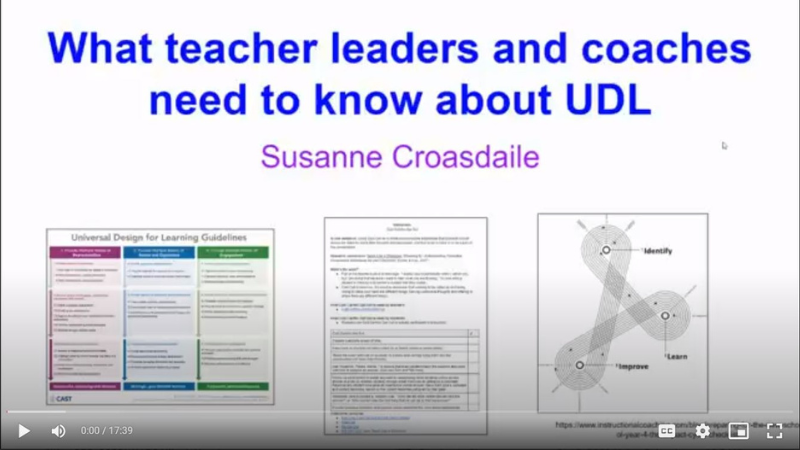
Snapshot 105
What teacher leaders and coaches need to know about UDL
Presenters: Susanne Croasdaile, Samantha Layne, and Kristen Hunter
As coaches and leads, we are expected to support our colleagues in “the right moves” to reduce barriers for student learning. But what are the right moves? We’re sharing our Instructional Playbook for coaches and leads that’s built on the Universal Design for Learning (UDL) framework for teaching and learning. We’ll share how using the UDL guidelines makes us more effective coaches and teacher leaders and first (or next) steps for anyone in those roles.
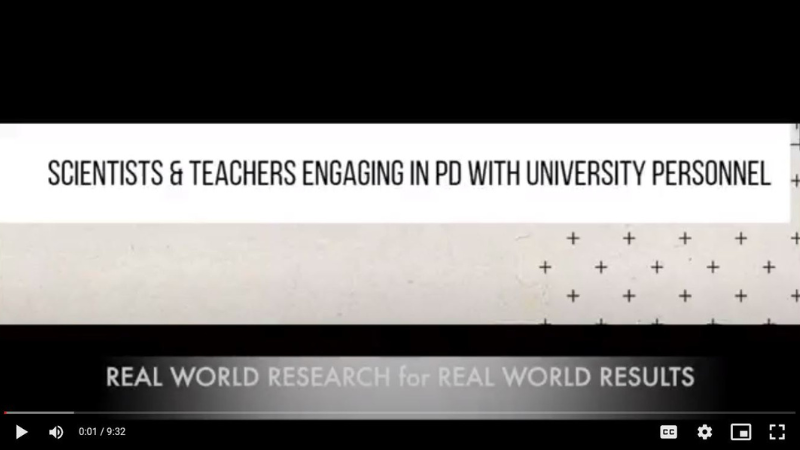
Snapshot 106
STEPD-UP, Scientists and Teachers Engaging in Professional Development with University Personnel: Mission Digital Fluency and NGSS
Presenters: Rebecca Grella
To zero in on career opportunities in STEM, It is critical to engage educators and students in real-world STEM research. With the assistance of scientists from a local university, we turn classrooms into learning laboratories. The Lab Classroom provides authentic opportunities for teachers to “see” ideas in practice. We combine NGSS with Digital Fluency standards and provide teachers with professional learning experiences that focus on 21st century skills. The program encourages educators and students to think, collaborate, and innovate as well as explore STEM careers.
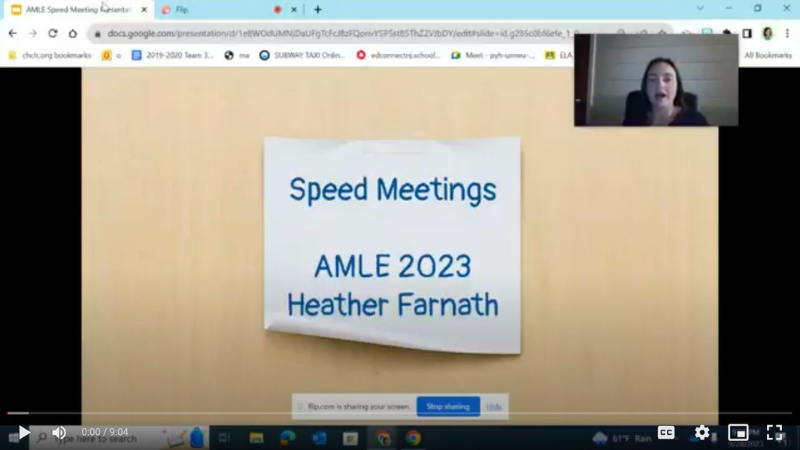
Snapshot 107
Keep your students on task with speed meetings!
Presenter: Heather Farnath
“Speed meetings” keep your classes on task! This instructional strategy gives students multiple opportunities to work with different partners and engages the entire class at once. This session demonstrates how to combine tried-and-true classroom management strategies such as setting clear goals, incorporating frequent feedback, utilizing movement, and displaying timers. I will provide a template and walk you through the strategy using real-world examples from my classroom.
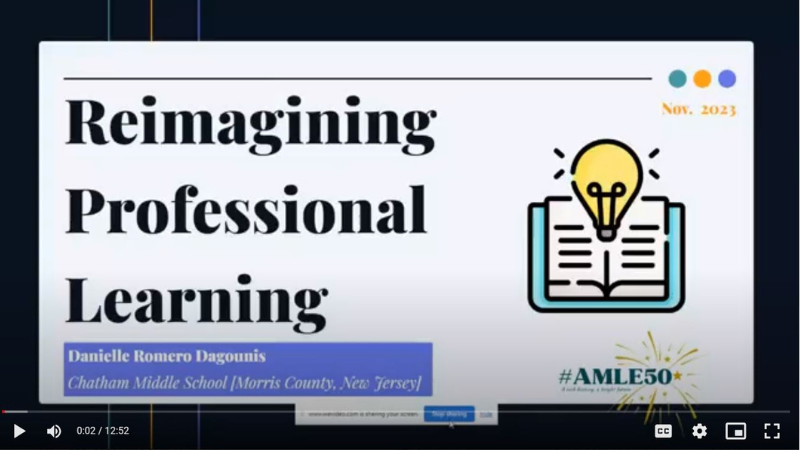
Snapshot 108
Reimagining Middle Grade Educator Professional Learning
Presenters: Danielle Dagounis and Anthony Orsini
Chatham Middle School redesigned its professional learning (PL) program to foster ongoing professional growth through collaboration, feedback, and self-reflection centered around student learning. This session highlights how every aspect of the program, starting with novice educator induction and support through opportunities afforded to all educators, resulted in educator choice, a focus on student learning needs, and meaningful and worthwhile self-directed learning that improved PL attitudes.
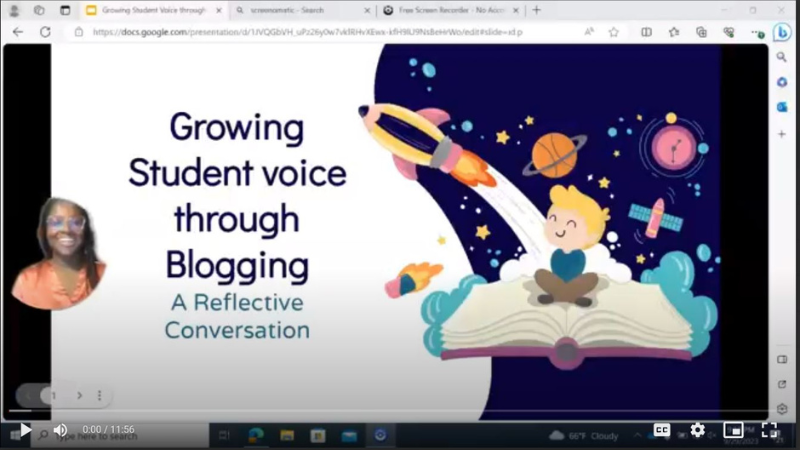
Snapshot 109
Developing Critical Literacy through Student Blogging
Presenter: Jacquelyn Southerland
Critical Thinking is essential in education. It is the logistics for students to develop higher- order thinking skills intrinsically . As educators we must facilitate this piece through exploratory and diverse means for student personal development. Thus, Student Blogging has been a purposeful learning tool to engage and develop students’ critical thinking skills with minimal extrinsic input. I developed cross-content strategies to invoke intrinsic student-led engagement, collaboration, and reflection to promote meaningful learning.)
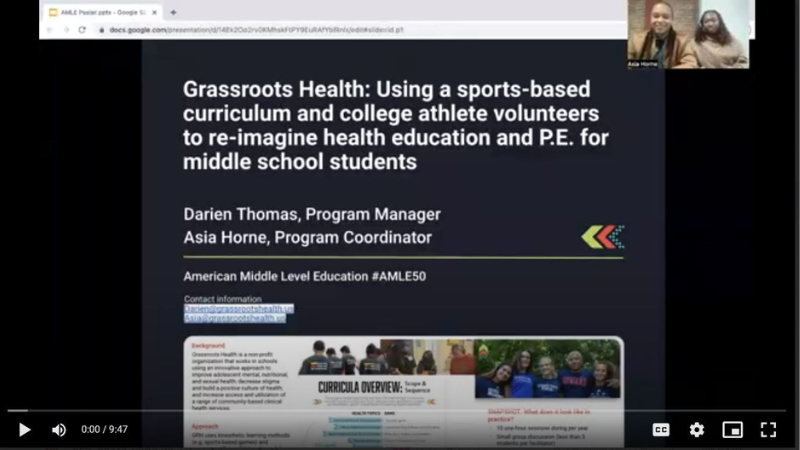
Snapshot 110
Using a Sports-Based Curriculum and College Athlete Volunteers to Re-Imagine Health Education and P.E. for Middle School Students
Presenters: Asia Horne and Darien Thomas
Grassroots Health (GrassrootsHealth.us) is an innovative, youth-led nonprofit organization that provides sports-based health promotion programs during middle school P.E. classes. By using kinesthetic learning methods, its model combines movement with learning and thereby reduces the common challenge that schools face in carving out the time and space necessary for both P.E. and health education. Grassroots Health’s model also places teams of 5 trained college athletes as facilitators of the curriculum in each of its partner classrooms, enabling youth to build relationships with local trusted adult role models over the program’s 10 weekly sessions. Our proposed poster will highlight how Grassroots Health is re-imagining mental, nutritional, and sexual health education in our partner middle schools. We will present our current reach and impact, as well as our plans for future expansion and how attendees can get involved.
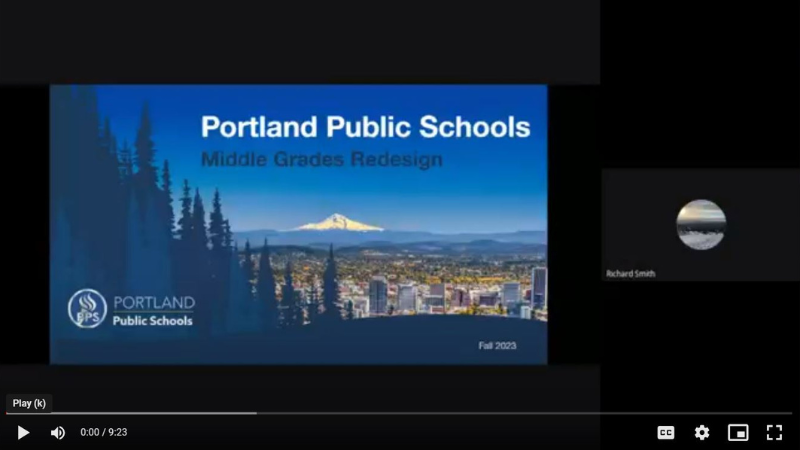
Snapshot 111
Portland Public Schools Middle Grades Redesign
Presenters: Joanna Tobin, Courtney Garside and Richard Smith
This session aims to provide a broad overview of the Portland Public Schools 2023-26 Middle Grades Redesign. Presenters will spotlight their partnership with AMLE and share lessons learned and promising next steps. This presentation will be both informational and interactive as we elevate best practices in support of deeply engaging the brilliance of the adolescent learners.
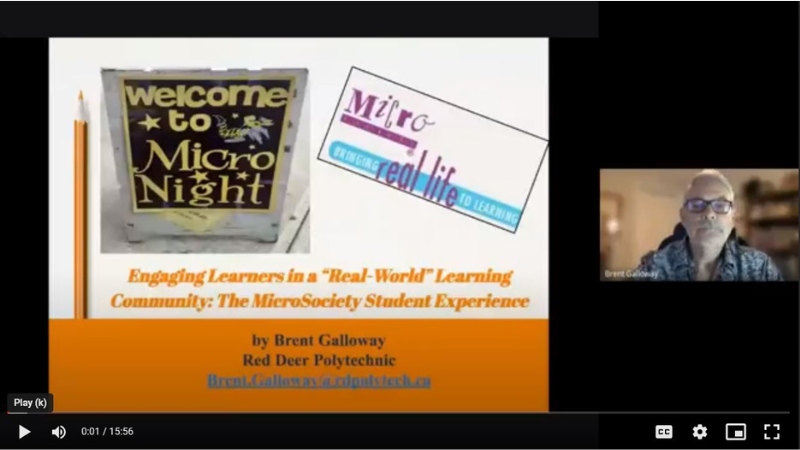
Snapshot 112
Engaging Learners in a “Real-World” Learning Community: The MicroSociety Student Experience
Presenter: Brent Galloway
MicroSociety is an experiential program designed to provide authentic learning experiences that help prepare students for life beyond school. The purpose of this session is to share research on how young people experienced learning within this program and how their experiences contributed to their feelings of engagement and empowerment as students in a MicroSociety school. This research study suggests that their positive feelings were due to the provision of real-world learning opportunities that replicated the adult world and provided participants with roles and responsibilities that allowed them to develop competence and confidence. Most importantly, these students became contributing members of a community of practice that continues to have a meaningful impact on their lives.
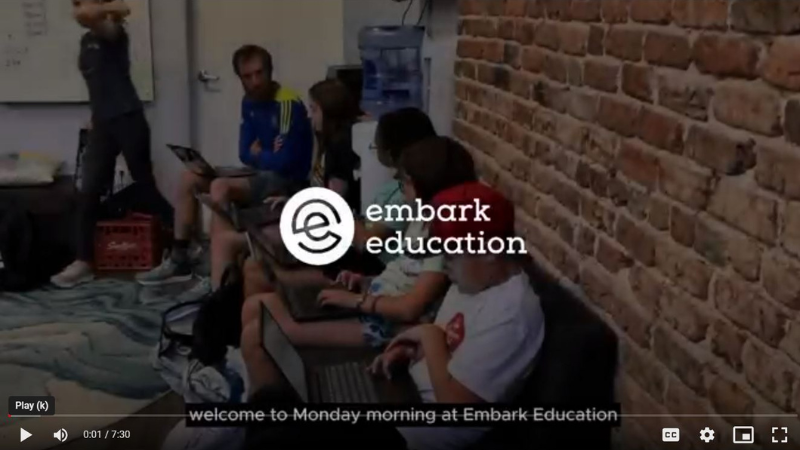
Snapshot 113
Learner-Centered Scheduling
Presenter: Carissa Solomon
84% of learners at Embark Education agree they have a say in their learning. Desire the same for your students? Try increasing student agency by ceding control over their weekly schedules. Learn how Embark educators teach time management skills so learners can prioritize assignments, opt into desired choice lessons, plan for independent work, and schedule their time using Google Calendar. Gain inspiration and the concrete, transferable tools to launch your student-centered scheduling practice.
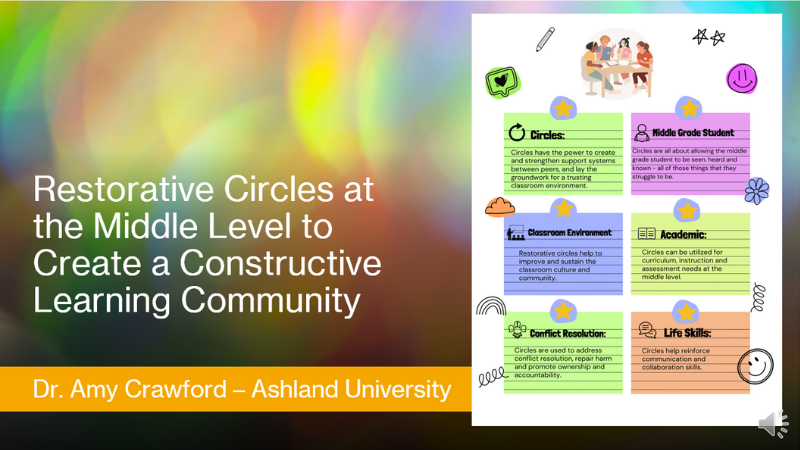
Snapshot 114
Utilizing Restorative Circles at the Middle Level to Create and Sustain a Constructive Learning Community
Presenter: Amy Crawford
Restorative Practices are a set of strategies that are implemented in schools to work on building and sustaining constructive relationships. Circles are proactive approaches under the umbrella of Restorative Practices that educators can utilize to cultivate a classroom community at the middle level that focuses on improving academics as well as classroom management.
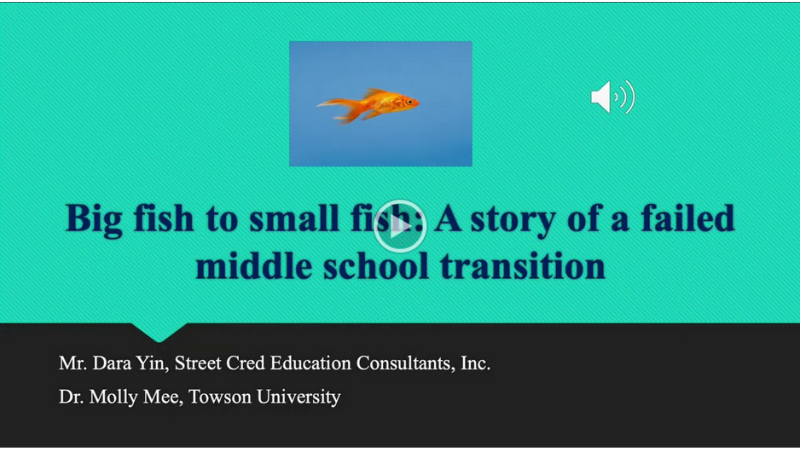
Snapshot 115
From Big Fish to Small Fish: One Story of a Failed Transition
Presenters: Molly Mee and Dara Yin
This is the story of 8th grader Dara, whose middle school teachers failed him, literally and figuratively. Dara was doing okay despite his traumatic childhood. He was a big fish in a small pond. But, he failed two classes, and had to repeat the 8th grade. When he entered the 9th grade his friends had moved on and he was lonely and unmotivated. He was a small fish in a big pond. He dropped out in 9th grade, joined a gang, committed crimes, and was incarcerated for more than 20 years. In this session, Dara shares his experiences and advice to middle school teachers.
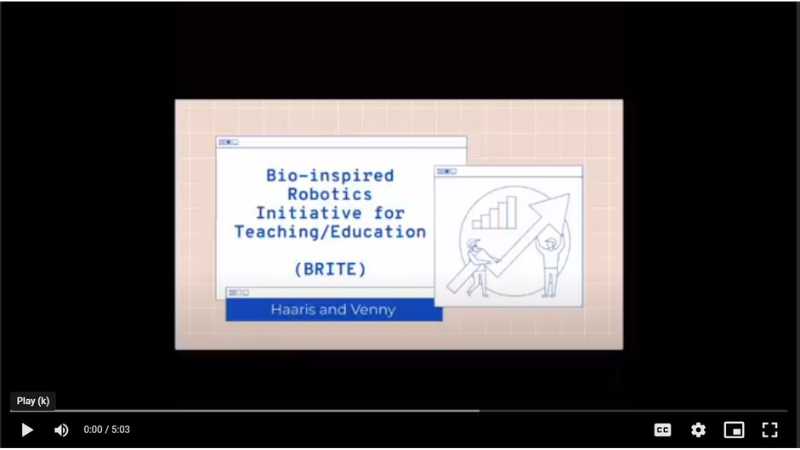
Snapshot 116
Bio-Inspired Robotics Initative for Teaching and Education (BRITE)
Presenters: Haaris Jilani and Velin Kojouharov
BRITE provides an engaging way to connect biology and engineering for middle school students. Combining principles of Bloom’s Taxonomy with hands-on “robotic” demonstrations, this program shows students how the solutions to many human engineering problems are derived from nature. Through BRITE curriculum, students are introduced to principles of bio-inspired design, guided to connect these principles to aspects of their daily lives, and apply these principles to build their own creations.
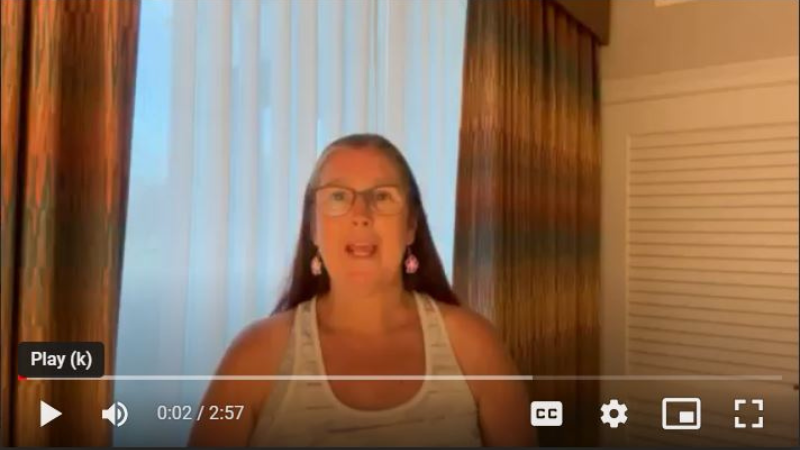
Snapshot 117
Student Engagement and Motivation – Randomization
Presenter: Janna Meyers
Randomization is another way to gain engagement in the classroom. It is not feasible for every student to participate in every lecture or in every class assignment, but you want them engaged and involved in the learning process. By trying to tag everyone in a lesson you may start to lose students. One of the problems with this approach is that once a student has contributed, they may lose focus or become detached from the rest of the lesson.
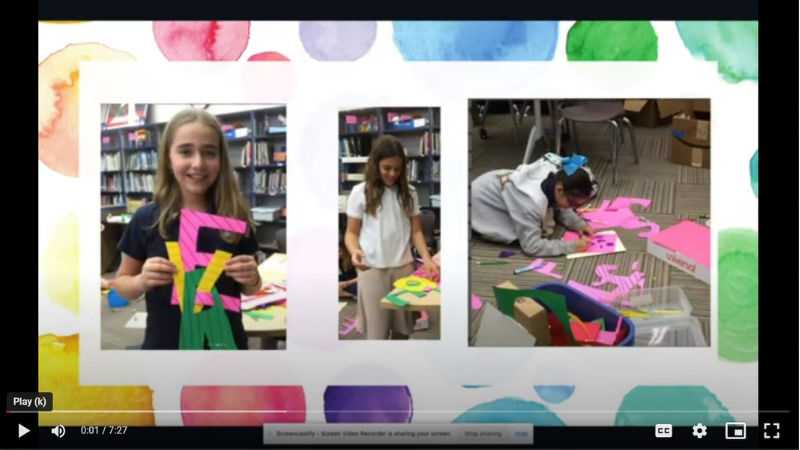
Snapshot 118
Girls Building STEAM: Empowering student leadership through student led clubs
Presenter: Nancy Penchev
In 2015 Girls Building STEAM was started to encourage students in grades 3-5 to explore STEAM fields and have fun with learning. The program has since grown to include middle and high school students who have taken on leadership roles in the program. In this session our current student leaders will share their ideas for building student leadership and encouraging girls to take an active role in learning. Plans for club meetings, advertising, grant writing ideas, and more will be shared with attendees in order to encourage more clubs for Girls in STEM and leadership.
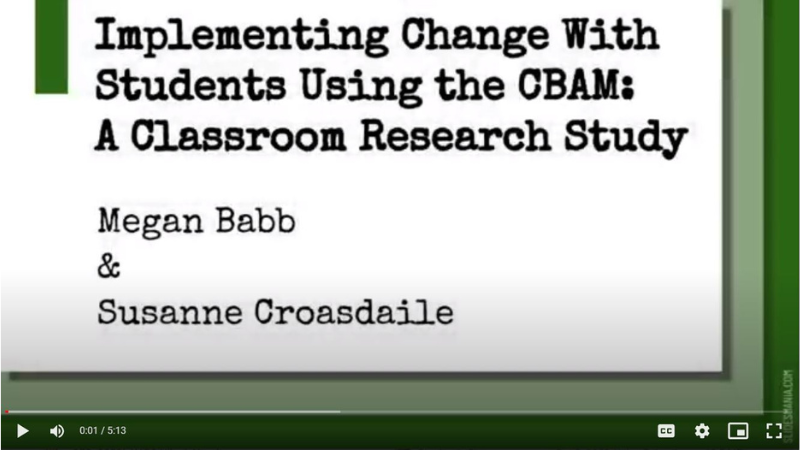
Snapshot 119
Implementing Change with Students using the Concerns-Based Adoption Model in Secondary English/Language Arts
Presenters: Megan Babb and Susanne Croasdaile
Our classroom research study explored the utility of the Concerns-Based Adoption Model when implementing typical learner-owned strategy instruction with secondary English students in a diverse suburban middle school and high school. In our research, we sought to answer the question: How can the tools and approaches of the Concerns-Based Adoption Model be applied to implementing change related to learner-owned strategies in secondary ELA?
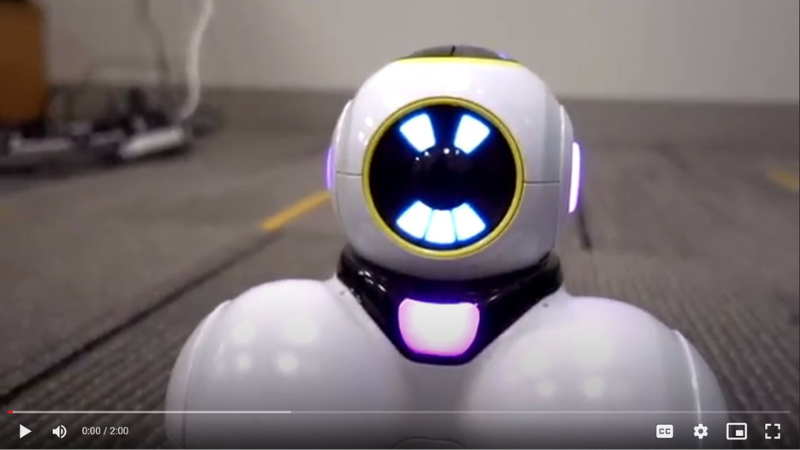
Snapshot 120
Making Innovation the Center of Learning
Presenter: Erin Scholes
As technology rapidly changes so does the way students and teachers use technology for teaching and learning. In this poster session you will get a small glimpse into the Innovation Center at Beman Middle School in Middletown, CT. You will see the space, the materials and hear how the Innovation Coordinator created interactive professional development to help staff learn about the space. Creating flexible spaces where innovation is the center of learning will prepare schools for the Next 50.
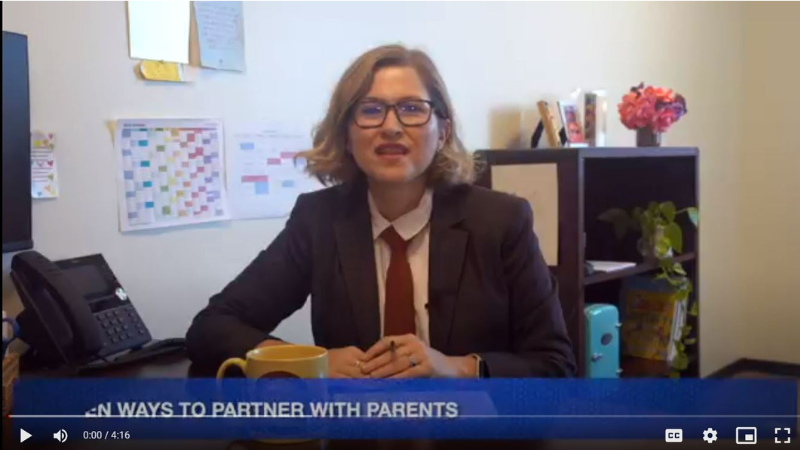
Snapshot 121
Effective and efficient ways to partner with parents
Presenter: Crystal Frommert
As a 20+ years middle school teacher, I know that communicating with parents is crucial to our students’ success but it is not easy. This session will provide educators with practical how-to’s for effective and efficient parent communication through a variety of methods: phone calls, emails, newsletter, meet-the-teacher night, conferences, and more. I am the author of the new book “When Calling Parents Isn’t Your Calling: A teacher’s guide to communicating with parents” which serves as a helpful resource for educators who may struggle to communicate with parents and provides practical advice for improving parent-teacher partnerships.
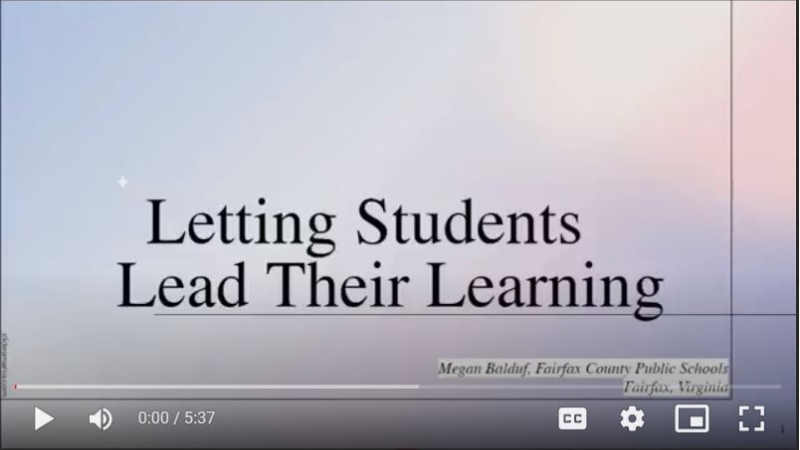
Snapshot 122
Letting Students Lead Their Learning
Presenter: Megan Balduf
No matter its name – self-paced or mastery learning, Modern Classroom Project, Grid Method, PBL – letting students drive their learning opens opportunities for their success. Students can either work quickly, show their understanding, and engage in enrichment or take more time, getting additional support or extended practice. The teacher will know where all students are, what they’re working on, and what they need to move on. When students control their learning, it is beneficial for all.
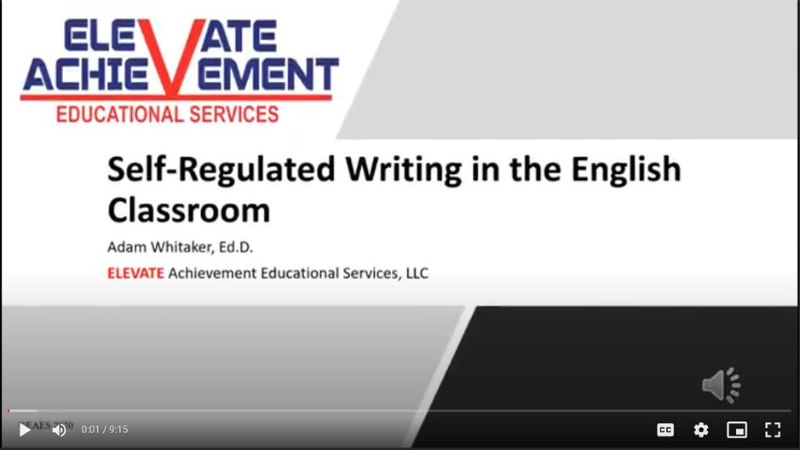
Snapshot 123
Building Student Writing Capacity: Self-Regulated Writing in the English Classroom
Presenter: Adam Whitaker
In this session, participants will learn how to implement a self-regulated writing strategy to support students in writing informative/explanatory essays. Additionally, participants will have the opportunity to unpack a student writing exemplar, discuss the impact of a self-regulated writing approach on students, and reflect on how they can incorporate this pedagogical approach in their own classrooms.
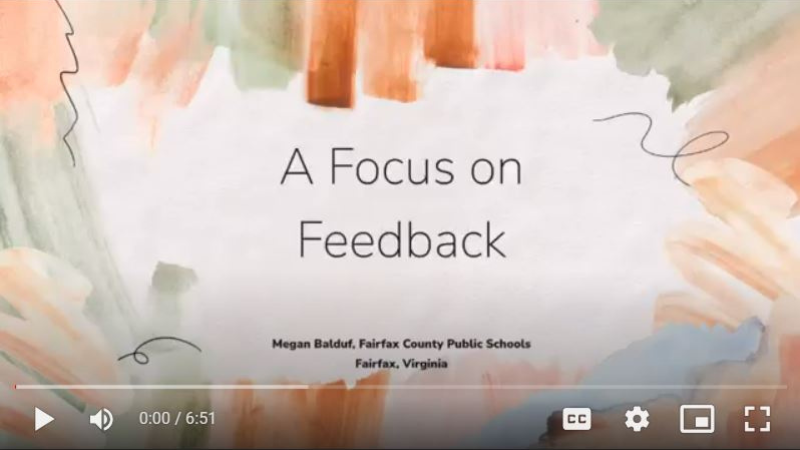
Snapshot 124
A Focus on Feedback
Presenter: Megan Balduf
Teachers hear feedback and think of the notes written on a project or essay, or points taken off test items. This mischaracterizes feedback. Feedback should not wait until the end of learning and does not need to be individualized or written. Feedback should be targeted and clear, encouraging next steps to help students grow their content knowledge, content processes (such as how to run a lab), and global processes (such as time management).
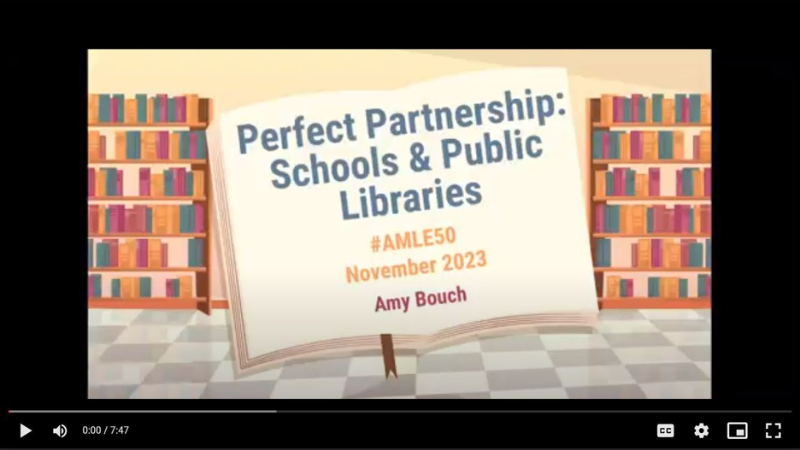
Snapshot 125
Perfect Partnership: Schools & Public Libraries
Presenter: Amy Bouch
Schools and public libraries can form a perfect partnership that is mutually beneficial. Learn about opportunities for students to greatly benefit from this partnership through gaining greater access to books and resources, a community venue for sharing writing, and much more!
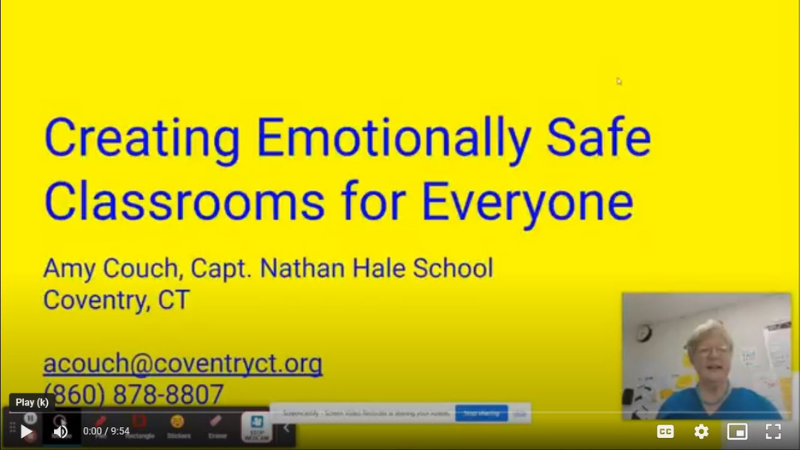
Snapshot 126
Creating Calm and Emotionally Safe Classrooms for Everyone
Presenter: Amy Couch
Creating calm and emotionally safe classrooms for everyone allows students space to take risks, make mistakes, and learn from one another. Building relationships, self-advocacy, and confidence in our students leads to positive communication, meaningful connections, and supporting one another. The ideas and strategies shared can be used for all classes.
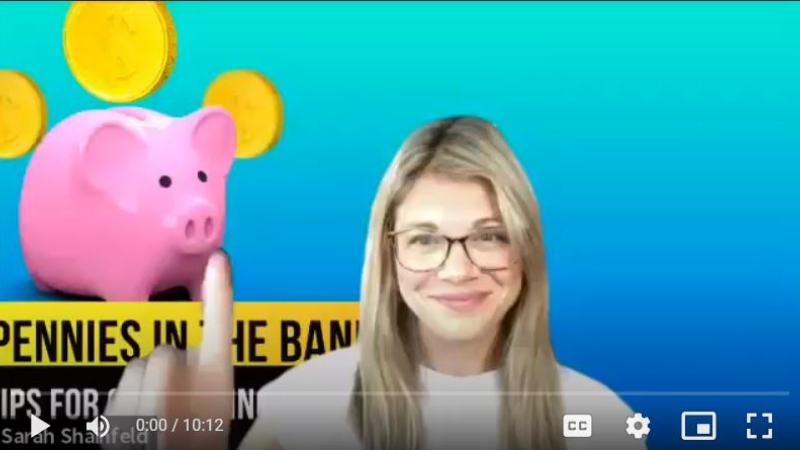
Snapshot 127
Pennies in the Bank: 3 Classroom Connectors
Presenter: Sarah Shainfeld
Sarah Shainfeld shares the three big activities she incorporated in her 8th grade classroom to create strong relationships with and among her students, and how they impacted her teaching mindset. These strategies can be incorporated into any content area in the middle school classroom and are a great investment in building foundational relationships for learning.